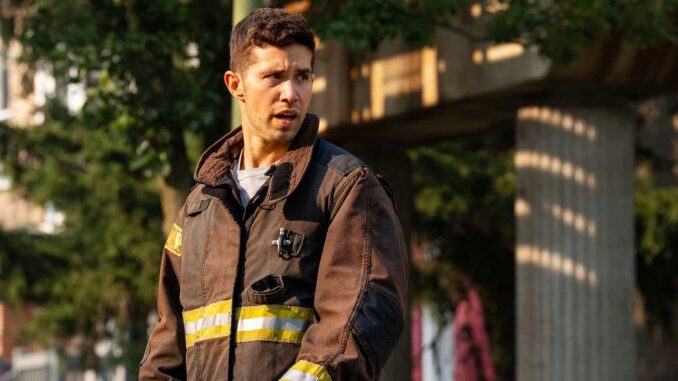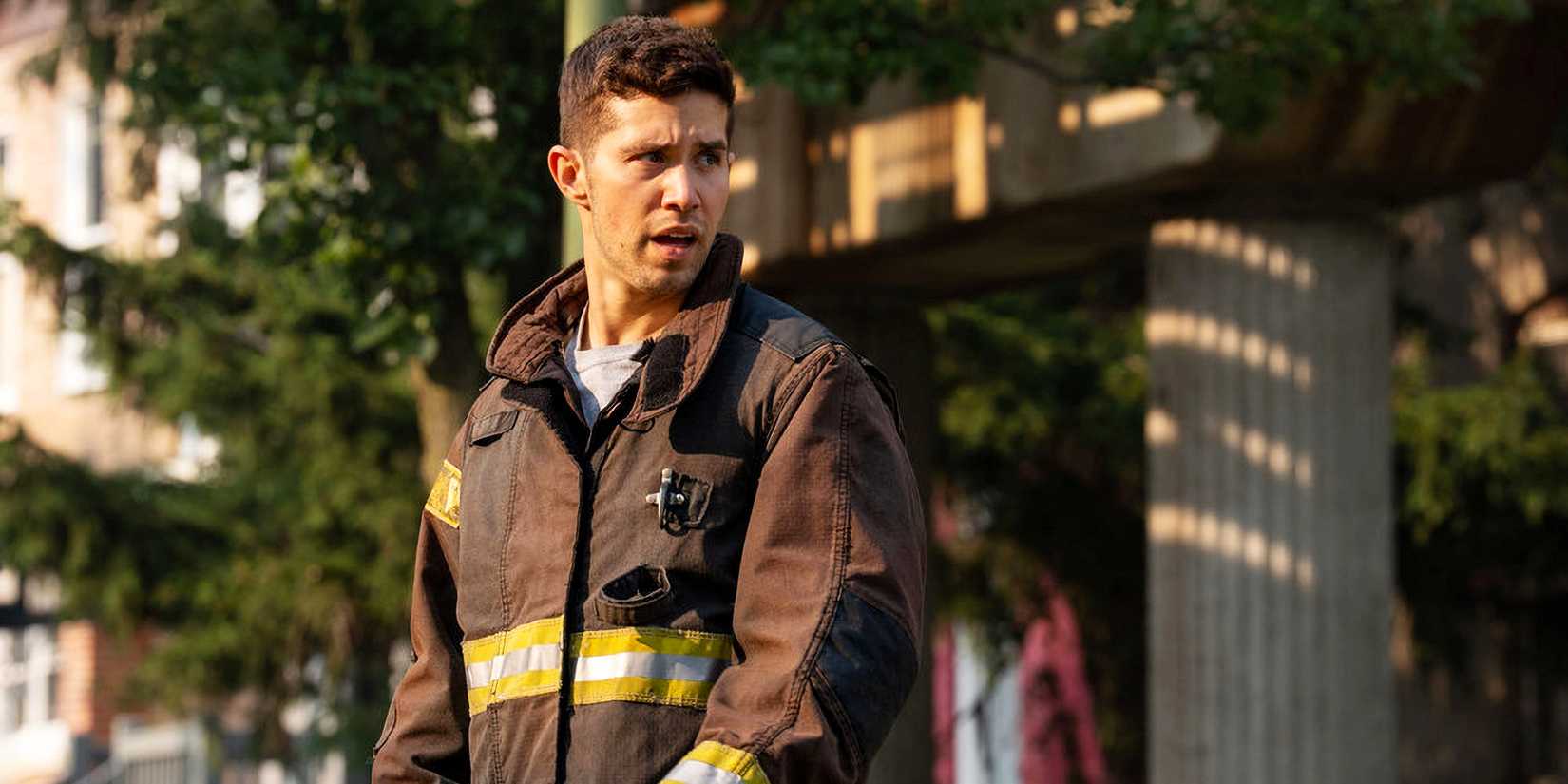
‘Chicago Fire’ Finds Its New Hero: Brandon Larracuente Steps In After Carver’s Exit
The siren’s wail, the searing heat, the indomitable spirit of Firehouse 51 – these are the anchors of Chicago Fire, a show that has, for over a decade, depicted the visceral reality and profound humanity of first responders. Its enduring appeal lies not just in the spectacle of raging infernos, but in the intricate dance of family, friendship, and resilience that unfolds within its walls. Yet, even the most steadfast hearth demands new fuel to keep its flame alive, and with the departure of a character like Sam Carver, a noticeable gap emerges, a space waiting to be filled. Enter Brandon Larracuente, poised to step into the inferno, not merely as a replacement, but as Chicago Fire‘s new hero, ready to forge his own legacy in the heart of the squad.
Carver’s exit leaves behind more than just an empty bunk; it leaves a narrative void, a smoldering ember where a vibrant, often conflicted, personality once burned. Sam Carver, initially introduced with a prickly exterior and a checkered past, had grown into a complex, integral part of the Firehouse 51 family. His journey from an abrasive newcomer to a trusted, if still somewhat haunted, member of the team illustrated the show’s central theme: the power of found family and the capacity for growth under pressure. His absence necessitates a rebalancing of dynamics, a chance for new perspectives to ignite fresh storytelling arcs. The challenge for Larracuente, then, is not to mimic Carver, but to bring a wholly different kind of energy, a distinct shade to the ensemble’s vibrant palette.
Brandon Larracuente, with his fresh face and proven acting chops from roles in shows like 13 Reasons Why and Party of Five, arrives not as a veteran chief, but as a potentially raw, yet earnest, force. His “hero” will likely be one sculpted by a new generation of experiences, perhaps one grappling with the subtle anxieties of modern life while confronting the timeless dangers of firefighting. Imagine him on his first major call: not the seasoned swagger of Severide, nor the paternal wisdom of Boden, but a more acute, almost palpable tension in his eyes as he peers into the smoke-choked abyss of a burning building. His breaths might be a fraction shorter, his movements a touch less fluid than his veterans, illustrating the sheer weight of responsibility settling onto new shoulders. This isn’t weakness; it’s relatable humanity, the very core of Chicago Fire‘s heroism.
The illustrative power of Larracuente’s entry will truly shine in the small, intimate moments that define Firehouse 51. Picture him in the common room, perhaps silently observing Mouch’s dry wit or Stella Kidd’s leadership. Will he be the quiet observer, absorbing the unwritten rules of the house? Or will he challenge an established dynamic, perhaps offering a fresh perspective on a procedural issue, causing a ripple of friendly debate that ultimately strengthens the team? His heroism won’t solely be defined by pulling victims from flames; it will be in the subtle acts of camaraderie, the offer of a quiet cup of coffee after a particularly grueling shift, the unspoken understanding shared during a shared meal. He might be the one to bridge a generational gap, introducing new ideas or technologies, or simply a different brand of humor that forces the veterans to see things anew.
His journey to “hero” status will undoubtedly be a crucible, testing his resolve both physically and emotionally. We can envision scenes where he makes a split-second decision that, while perhaps unorthodox, saves a life, earning him a nod of approval from a skeptical senior officer. Or perhaps he faces a personal demon from his past, an internal fire that he must extinguish even as he battles external ones, showing that true heroism often resides in the quiet strength to confront one’s own vulnerabilities. This nuanced portrayal of heroism – one that acknowledges imperfection, struggle, and growth – is precisely what Chicago Fire does best, and Larracuente’s character has the potential to embody it brilliantly.
In the ever-evolving landscape of Firehouse 51, change is not just inevitable; it is the very spark that ignites new stories and reinforces the show’s core message. Brandon Larracuente’s arrival is not merely a casting announcement; it is the promise of a revitalized narrative, a fresh perspective on courage, and a new character to anchor the emotional journey of the squad. As the alarms continue to clang and the trucks roll out, the audience will witness his flame ignite, growing from a hesitant flicker to a steady, unwavering beacon. For in the heart of Chicago Fire, true heroism is always being redefined, and Larracuente is poised to illustrate its latest, most compelling chapter.
